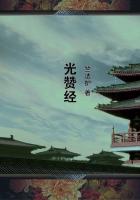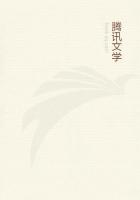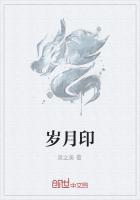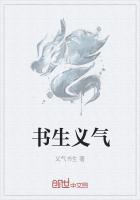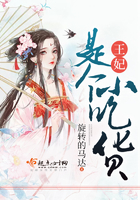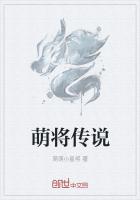The path that led somewhere was the English habit of mind which deepened its ruts every day. The English mind was like the London drawing-room, a comfortable and easy spot, filled with bits and fragments of incoherent furnitures, which were never meant to go together, and could be arranged in any relation without ****** a whole, except by the square room. Philosophy might dispute about innate ideas till the stars died out in the sky, but about innate tastes no one, except perhaps a collie dog, has the right to doubt; least of all, the Englishman, for his tastes are his being; he drifts after them as unconsciously as a honey-bee drifts after his flowers, and, in England, every one must drift with him. Most young Englishmen drifted to the race-course or the moors or the hunting-field; a few towards books; one or two followed some form of science; and a number took to what, for want of a better name, they called Art. Young Adams inherited a certain taste for the same pursuit from his father who insisted that he had it not, because he could not see what his son thought he saw in Turner. The Minister, on the other hand, carried a sort of æsthetic rag-bag of his own, which he regarded as amusement, and never called art. So he would wander off on a Sunday to attend service successively in all the city churches built by Sir Christopher Wren; or he would disappear from the Legation day after day to attend coin sales at Sotheby's, where his son attended alternate sales of drawings, engravings, or water-colors. Neither knew enough to talk much about the other's tastes, but the only difference between them was a slight difference of direction. The Minister's mind like his writings showed a correctness of form and line that his son would have been well pleased had he inherited.
Of all supposed English tastes, that of art was the most alluring and treacherous. Once drawn into it, one had small chance of escape, for it had no centre or circumference, no beginning, middle, or end, no origin, no object, and no conceivable result as education. In London one met no corrective. The only American who came by, capable of teaching, was William Hunt, who stopped to paint the portrait of the Minister which now completes the family series at Harvard College. Hunt talked constantly, and was, or afterwards became, a famous teacher, but Henry Adams did not know enough to learn. Perhaps, too, he had inherited or acquired a stock of tastes, as young men must, which he was slow to outgrow. Hunt had no time to sweep out the rubbish of Adams's mind. The portrait finished, he went.
As often as he could, Adams ran over to Paris, for sunshine, and there always sought out Richardson in his attic in the Rue du Bac, or wherever he lived, and they went off to dine at the Palais Royal, and talk of whatever interested the students of the Beaux Arts. Richardson, too, had much to say, but had not yet seized his style. Adams caught very little of what lay in his mind, and the less, because, to Adams, everything French was bad except the restaurants, while the continuous life in England made French art seem worst of all. This did not prove that English art, in 1866, was good; far from it; but it helped to make bric-à-brac of all art, after the manner of England.
Not in the Legation, or in London, but in Yorkshire at Thornes, Adams met the man that pushed him furthest in this English garden of innate disorder called taste. The older daughter of the Milnes Gaskells had married Francis Turner Palgrave. Few Americans will ever ask whether any one has described the Palgraves, but the family was one of the most describable in all England at that day. Old Sir Francis, the father, had been much the greatest of all the historians of early England, the only one who was un-English; and the reason of his superiority lay in his name, which was Cohen, and his mind which was Cohen also, or at least not English. He changed his name to Palgrave in order to please his wife. They had a band of remarkable sons: Francis Turner, Gifford, Reginald, Inglis; all of whom made their mark. Gifford was perhaps the most eccentric, but his "Travels" in Arabia were famous, even among the famous travels of that generation. Francis Turner -- or, as he was commonly called, Frank Palgrave -- unable to work off his restlessness in travel like Gifford, and stifled in the atmosphere of the Board of Education, became a critic. His art criticisms helped to make the Saturday Review a terror to the British artist. His literary taste, condensed into the "Golden Treasury," helped Adams to more literary education than he ever got from any taste of his own. Palgrave himself held rank as one of the minor poets; his hymns had vogue. As an art-critic he was too ferocious to be liked; even Holman Hunt found his temper humorous; among many rivals, he may perhaps have had a right to claim the much-disputed rank of being the most unpopular man in London; but he liked to teach, and asked only for a docile pupil. Adams was docile enough, for he knew nothing and liked to listen. Indeed, he had to listen, whether he liked or not, for Palgrave's voice was strident, and nothing could stop him.
Literature, painting, sculpture, architecture were open fields for his attacks, which were always intelligent if not always kind, and when these failed, he readily descended to meaner levels. John Richard Green, who was Palgrave's precise opposite, and whose Irish charm of touch and humor defended him from most assaults, used to tell with delight of Palgrave's call on him just after he had moved into his new Queen Anne house in Kensington Square: "Palgrave called yesterday, and the first thing he said was, 'I've counted three anachronisms on your front doorstep.' "
Another savage critic, also a poet, was Thomas Woolner, a type almost more emphatic than Palgrave in a society which resounded with emphasis.

